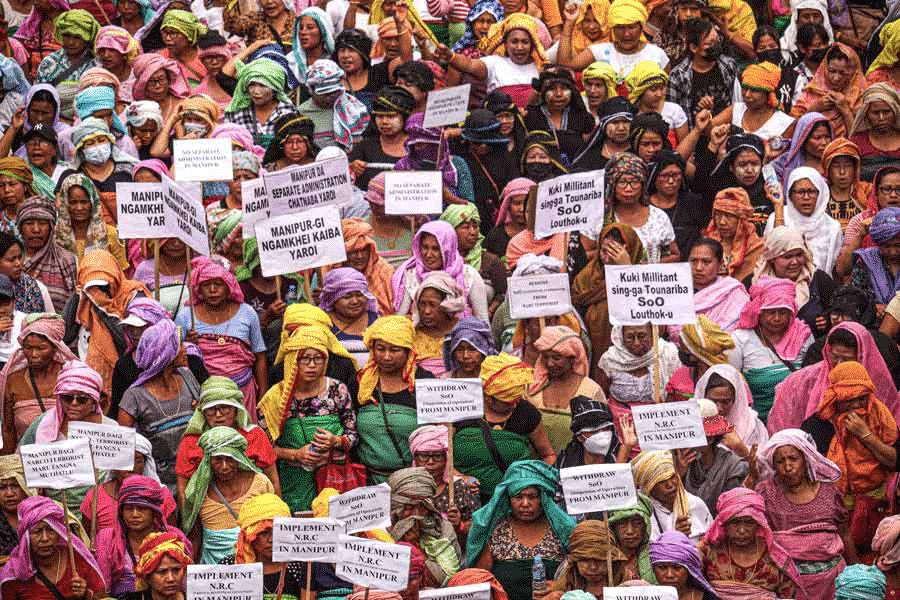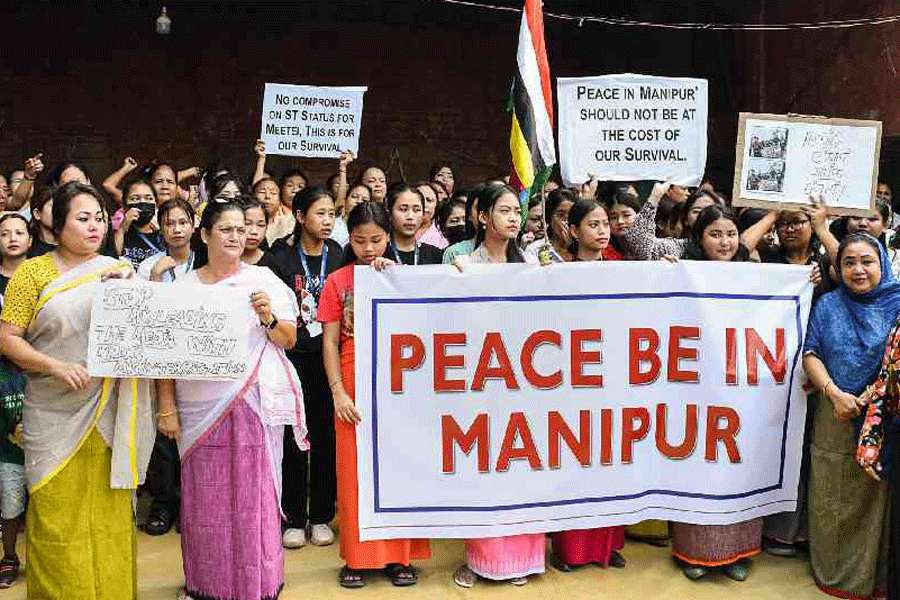People living in relief camps in Manipur lack access to adequate healthcare services and nutrition while children in the camps appear at risk of post-traumatic stress disorder amid continued mistrust between communities in the state, a five-member medical team cautioned on Monday.
The team from the Indian Doctors for Peace and Development (IDPD), a non-government group that visited relief camps in both Meitei and Kuki areas in Manipur on September 1 and 2, has urged state and central government interventions to address these concerns.
The armed conflict between the Meitei community and the Kuki tribals in Manipur that erupted in May this year had by July-end claimed 181 lives, including 113 Kukis and 62 Meiteis, a Reuters news agency report had said, citing government data. Citizens’ groups and Opposition political leaders have blamed the state government and the Narendra Modi government for not intervening early enough to curb the conflict marked by riots, killings and rape.
The displaced Kukis in the hills informed the IDPD team that while earlier patients used to be referred to Imphal for treatment, they now have to travel to Kohima or Dimapur, about 150km away. Under the ongoing ethnic conflict, movements of citizens from the hills to the valley have stopped, the IDPD said.
“The level of continued mistrust between the communities is astonishing,” said Arun Mitra, president of the IDPD, a nationwide group of doctors that describes itself as “committed to peace, public health, and nuclear disarmament”. The mistrust, he said, is holding back the free movement of people.
Mitra, two doctors from Telangana and one from Tamil Nadu, and Shakeel ur Rahman, the Patna-based secretary of the IDPD, visited relief camps in Imphal district and in Kangpokpi district in the state’s hill areas meeting residents, relief camp officers and health department officials.
The IDPD said there are 334 relief camps in Manipur at present.
The Kangpokpi district hospital has neither an operation theatre nor blood storage facilities. Manipur faces an acute shortage of specialists and other doctors. The vast majority of the specialist doctors in Manipur are in three medical colleges in Imphal district and one medical college in Churachandpur district.
The IDPD team also noted that health authorities had not undertaken special immunisation drives against measles in children above nine months along with vitamin A oral supplementation although these measures are recommended for relief camps under the UN humanitarian relief standards.
The food rations supplied for the camp inmates include rice, lentils, potatoes and cooking oil, the IDPD said in its report on its observations, expressing concern about the conspicuous absence of vegetables, eggs, meat or fish.
Some relief camps are relying on civil society organisations and a few individuals to provide them vegetables.
One nodal officer in a relief camp in the hills told the IDPD team that it had received one egg per inmate once every 13 days and green vegetables were not supplied. The absence of vegetables and animal protein in the children’s diet may have adverse health consequences, the IDPD team said.
“There is evidence for significant psychological distress among relief camp inmates, particularly among young children,” Mitra said. “They have spent about four months in relief camps — some children are having nightmares, they are uncertain about their homes and future. They are at high risk of developing post-traumatic stress disorder.”












